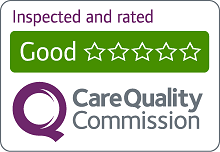When someone is diagnosed with Dementia, there are a number of ways in which they can react. Taking in the news and then processing it can take its toll, both mentally and physically, leaving the individual feeling drained and unsure about their next steps. This reaction can also be influenced by the person’s previous experiences, their current mental state and their understanding of Dementia. It’s also common to see denial or confusion when the diagnosis is delivered, which can be exacerbated if the situation is not handled with due care and attention. We’ve listed some useful pieces of advice for those who may be going through this themselves, or for those who may be caring for someone who has been newly diagnosed.
How to care for someone diagnosed with Dementia
1) Understand and manage their feelings
Being diagnosed with Dementia will be tough on their emotions. Some people will feel sadness or a sense of loss due to the idea that they will no longer be able to do the things they used to enjoy, or carry on with plans for the future. Others may feel as though they did something wrong which then caused them to develop Dementia, or maybe not enough to prevent it. However, this is not something to think about too much, as the root cause for Dementia is not yet known and therefore cannot be linked to any right or wrong doings.
2) Talk to those around you
Someone who has recently been diagnosed, will be experiencing a range of emotions. They will have many questions about their dementia so talking to them is the best way forward. Their initial response may be to keep their feelings closed off, working through the logical steps with those offering support will be extremely beneficial. If you’re unable to do this, there are also a number of support groups available that will act as a safe space for you to discuss their diagnosis with others.
3) Look after yourself
Having received such life changing news, you want to make sure that they are in the best mental and physical state possible. Their emotions can have a knock-on effect on their overall health. One way to tackle this is by ensuring they have a healthy diet and are getting all their essential nutrients. Ensure they keep active, both mentally and physically – taking up a form of light exercise such as Pilates or yoga can also help to offer some form of head-space thanks to its core focus on meditation and mindfulness.
4) Care planning
In the early stages of Dementia, it’s important to know their medical preferences as their condition progresses. Communicating their preferences with your family, will ensure that they are not left with making any hard decisions themselves, if required to do so. Allocating someone who they trust to look after their possessions and finances when they are no longer able to can also help to bring peace of mind. It’s also essential to think about who will be caring for them as their condition progresses. Opting for live-in care enables them to stay in the comfort of your own home and receive 24/7 care, whilst visiting care allows them to maintain their independence with an added helping hand. Either way, knowing they have care and assistance when they need it will be a relief for both yourself and your loved ones.
IP Homecare are on hand to support you or a loved one with the diagnosis of dementia with our dementia home care services. Whether you’re looking for some extra support during the day or night or even longer periods of care – we’re here to help.
To find out more call: 0808 274 8827
